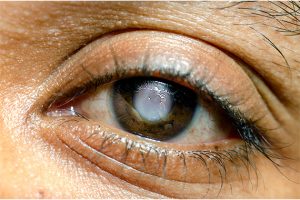Japanese woman who accused prominent journalist of raping her wins civil case

In a packed Tokyo District Court room on Wednesday, a judge ordered Noriyuki Yamaguchi to pay 3.3 million yen, or more than $30,000, in damages to Shiori Ito. Ito sought 11 million yen, or more than $100,000, in damages to compensate for her physical and emotional suffering. Ito alleged that in 2015, Yamaguchi — a former reporter for Tokyo Broadcasting System (TBS) — invited her out for dinner and then raped her. Yamaguchi, 53, has denied the allegations and even launched a 130 million yen counter appeal for damages to his reputation and invasion of privacy. On Wednesday, the Tokyo District Court judge dismissed his counter appeal. “The act was conducted against her will and she has no motive for making a false statement,” presiding judge Akihiro Suzuki said in a court judgment. “By contrast, Yamaguchi’s explanation changed an unreasonable amount, raising serious doubts about its credibility.”Suzuki concluded that Ito had not consented to the act.Ito became a symbol of the #MeToo movement in Japan after she publicly accused the prominent journalist of raping her. Her case brought to light the degree of shame sexual assault survivors in Japan can face, in addition to huge practical and legal hurdles.Although Ito took her case to the police, Yamaguchi was not arrested and the criminal case was dropped. The prosecutor’s office told CNN last year that they could not comment on individual cases.Despite her win on Wednesday, Ito said the ruling didn’t wipe away the past.”I was able to come this far with the support of many people. The court decision let me end one chapter, but a win doesn’t wipe away everything that happened,” she told press after the ruling. “I need to face my emotional scars from now. This is not the end.”At a press conference after the ruling, Yamaguchi said he planned to appeal in the near future. “I’ve never done anything that breaks the law,” he said.The allegationsWhen Yamaguchi invited Ito out for dinner, Ito thought he was taking an interest in her career, she told CNN in an interview last year.In 2015, the pair went out for sushi in Tokyo. At some point in the evening, she went to the bathroom. She says the next thing she remembered was waking up to him raping her. In May 2017, Ito went public with her accusation — an unusual move in Japan that shocked the public.But the response was far from supportive. She says she received threats, backlash on social media, and was left fearing for her and her family’s safety. Last year, she said she fled Japan.Ito also said that Japan’s justice system had failed her. After she reported the alleged crime, she said police tried to discourage her from pursuing legal action in her case. She had to undergo a humiliating recreation of the scene, she said.”I had to lay down on the floor, there were three of four male investigators with cameras, and they placed this lifelike doll on me and moved it and took photos,” she said.Yamaguchi resigned from his job at TBS in 2016, before the allegations came to light, but after Ito had complained to police. It is not clear whether the resignation and the allegation are connected. At the time, Yamaguchi told local media he wanted to go freelance.A bigger problemIto’s case is not isolated in Japan.Statistically, Japan has a relatively low rate of reported sexual assault. In a 2017 survey conducted by the cabinet office of Japan’s central government, almost one in 13 (7.8%) women said they had been raped.In the United States, one in five women will be raped at some point in their lives, according to the National Sexual Violence Resource Center. However, if Japanese women are raped, they are unlikely to tell the authorities. That same 2017 survey found that only about 3.7% of sexual assault victims in Japan report their rape to police.There are a number of reasons women might not come forward.Sexual assault continues to carry a heavy stigma, and women often feel shame following an attack. Japan traditionally has a culture of silence, and people are encouraged to toe the line.According to Japan’s public broadcaster NHK, there have been calls this year to change the country’s law around sexual assault after a string of not guilty verdicts in sexual assault cases. Currently, Japanese law requires proof that the victim was unable to resist due to physical violence or threats. Japan’s government is taking some steps to improve the situation. In 2017, it increased the minimum sentence for rape to five years. Last year, the government told CNN they are now creating one-stop support centers across Japan where victims of sexual violence can more easily seek help, as well as trying to raise more awareness of the issue.







